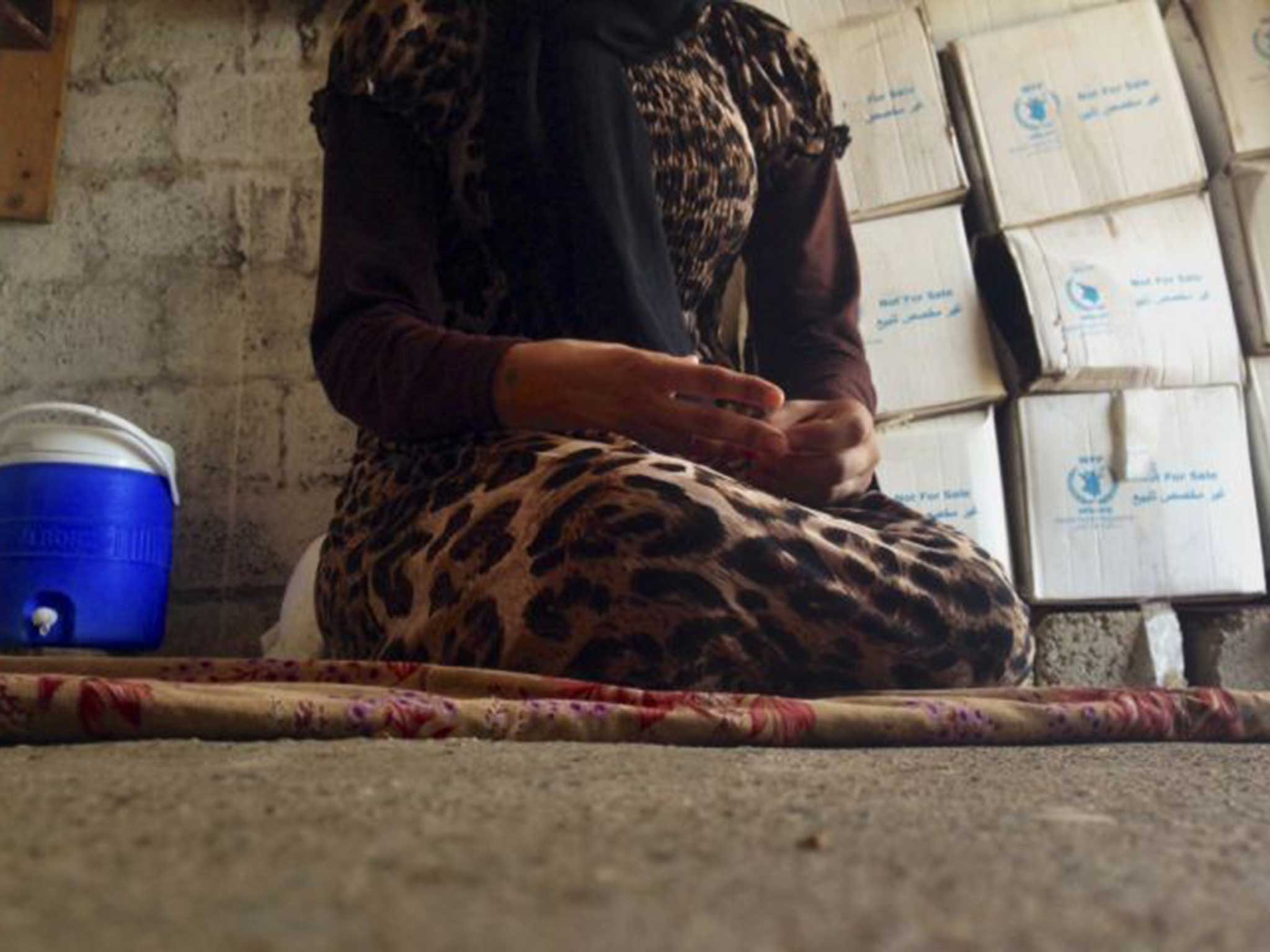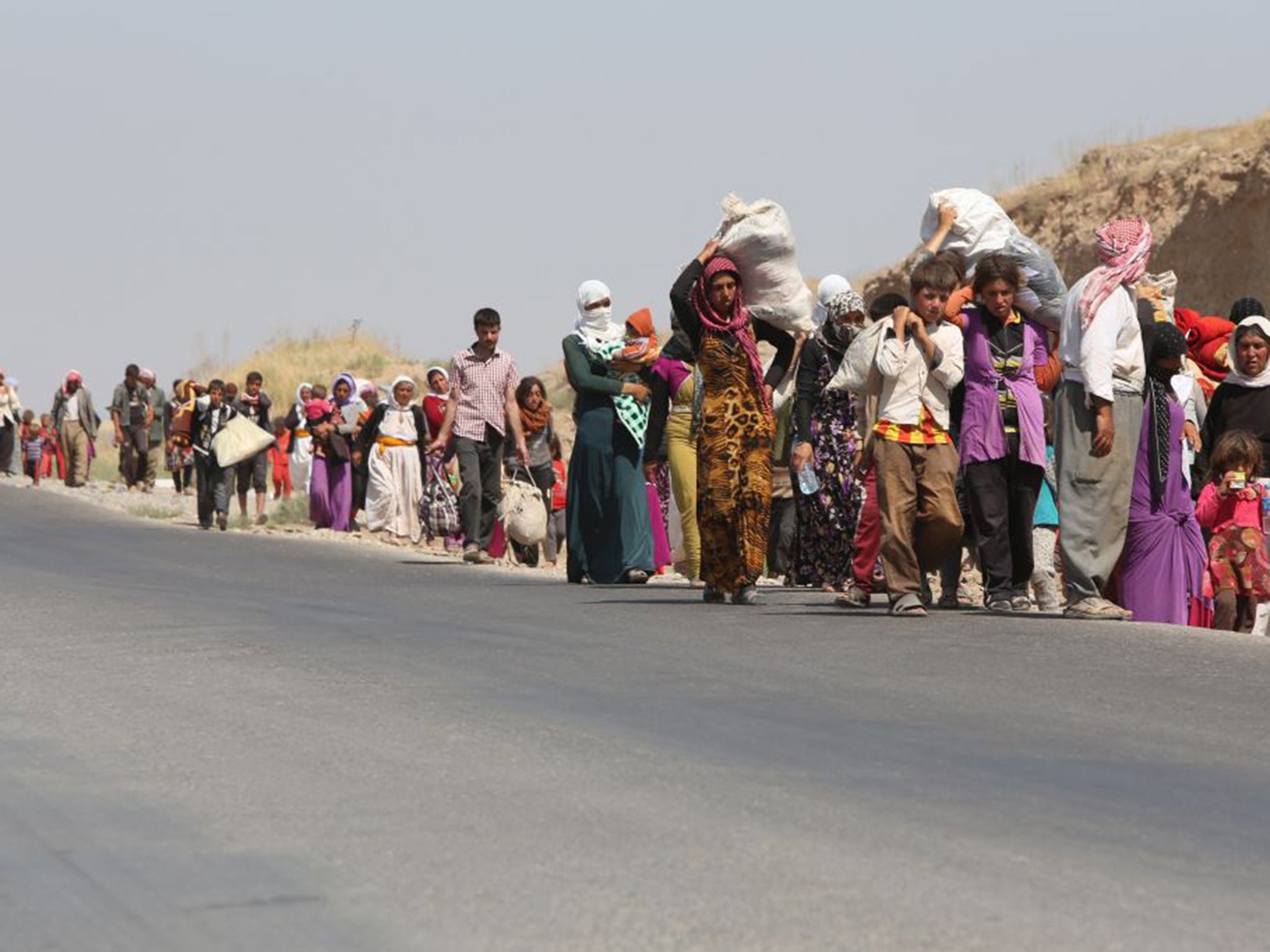Isis Yazidi sex slaves subjected to traumatic 'virginity tests' after escaping
Courts in Iraqi Kurdistan formerly used the method, which is also scientifically inaccurate, to prove abuse

Yazidi women and girls who manage to escape Isis after being captured as sex slaves have been undergoing traumatic “virginity tests” to prove they were abused.
Human Rights Watch interviewed victims who survived organised rape, captivity and forced marriage only to be subjected to the “abusive” examinations after believing they had reached safety in Iraqi Kurdistan.
Rothna Begum, a researcher at the group’s women’s rights division, said she spoke to a woman called Luna who had been kidnapped by Isis as the group swept through northern Iraq in 2014, sold four times and raped by all her “owners”.

She was one of hundreds of Yazidi women and girls believed to have since undergone painful “virginity tests” as a method of proving the rapes to Iraqi officials documenting Isis crimes.
A judge told Human Rights Watch researchers that the committee gathering evidence has subsequently stopped using the examinations and that a new reporting method has been adopted by the health directorate in Dohuk, based on UN recommendations.
“This is an important step for women and girls like “Luna” who can now pursue justice for the crimes against them in a process that shows deeper respect for women’s rights and a commitment to providing better care for rape survivors,” Ms Begum said.
The World Health Organisation has stated that there is no place for virginity testing in modern practice, saying the commonly-used method of inserting two fingers “has no scientific validity” and can be painful and distressing.

It is based on the inaccurate belief that all women and girls who have not had penetrative sex have intact hymens that bleed during first intercourse.
The same misapprehension has been driving former sex slaves to seek surgery to “restore their virginity” by repairing the membrane because of fears they will be shunned by future husbands or ostracised by family members and their communities.
“In the most extreme cases, women and girls were so traumatised by the fact they were no longer virgins that they were insisting on this surgery to feel whole again – they feel they have lost something,” Ms Begum told The Independent last year.
Isis, also known as the Islamic State and Daesh, issued guidelines to its fighters last year attempting to justify the taking of non-Muslim women as sex slaves under Islamic law and even released a “price list” for the women, who have been sold for as little as a packet of cigarettes.
Zainab Bangura, the UN’s special representative on sexual violence in conflict, has documented cases of victims being “sewn up” after being raped so their “owners” can sell them on as virgins.
All Yazidis have been declared heretics under Isis’ interpretation of Salafism and have been driven from their homes, enslaved and massacred in territories under the group’s control.
A prominent religious leader, Baba Sheikh, decreed that returning women should be treated as victims and welcomed back into the community but that has not been the case for all.
Those women and girls face not only stigma over sex outside of marriage, whether it was consensual or not, but also the trauma of pregnancy.
Abortion is illegal in Iraq except in cases where the mother’s life is directly at risk, forcing victims to turn to dangerous “back-street” doctors or bear the children of their rapists, sometimes giving birth at a dangerously young age.
Human Rights Watch is among the groups campaigning to have terminations made legal for rape victims or women at risk of suicide or honour-based violence.
Bookmark popover
Removed from bookmarks